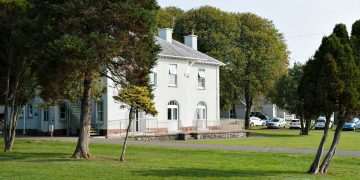The consumer champion has joined forces with WASPI and Independent Age to warn 1950s-born women of a dangerous ‘new trend’.

Liz Kendall announces Waspi women will not receive compensation
Martin Lewis and the charity Independent Age have joined forces with Women Against State Pension Inequality (WASPI) campaigners to warn millions of 1950s-born women not to fall for fake websites urging them to claim compensation. The financial guru warned scammers advertising “compensation over the change in State Pension age seems to be a new trend”.
WASPI said that 3.6 million women have been affected by changes to their State Pension age and is urging them to stay alert following a sharp rise in fraudulent websites claiming that compensation is available. Only the UK Government has the power and means to issue any compensation.
However, some of the fake websites falsely claim that ‘DWP announces £3,000 compensation for 3.8 million WASPI women’ while another labels itself as a ‘Martin Lewis WASPI Calculator’.
READ MORE: Former DWP employee warns State Pension Triple Lock creating two-tier uprating for people in retirementREAD MORE: DWP urges women impacted by State Pension age changes to get help finding work
After a long-running battle for justice, the UK Government apologised for the mistakes it made in December 2024, but stopped short of setting out a compensation scheme for those impacted.
In March 2024, the Parliamentary and Health Service Ombudsman (PHSO) recommended compensation at level four of its banding scale – between £1,000 to £2,950 per person – however, Secretary of State for Work and Pensions Liz Kendall said this would cost between £3.5 billion and £10.5 billion.
As a result, WASPI campaigners launched a High Court challenge, which is currently in progress, and opportunist scammers now seem to be using the legal battle to target unsuspecting women affected by changes to their retirement age.
WASPI Chair Angela Madden said recent days had seen an “alarming spike” in the number of scams, saying the behaviour of those preying on vulnerable women is “nothing short of disgraceful”.
She said any announcement on compensation for WASPI women would only ever come from the UK Government. However, no such scheme currently exists.
Affected women have received emails from bogus groups asking for sensitive information. At least one WASPI woman in Derbyshire reported that she had been asked to provide copies of her birth certificate and bank details through an online form, before realising it was a scam.
Ms Madden said: “WASPI has fielded dozens of queries from women following an alarming spike in fraudulent websites appearing in recent days. The need for compensation is so urgent that it is the most vulnerable women who are at risk from scammers. The behaviour of opportunists who seek to exploit them is nothing short of disgraceful.
“Any announcement on compensation will only ever come from the Government. Anybody who has shared sensitive information or feels they are at risk should contact Action Fraud.”
Martin Lewis, founder of MoneySavingExpert, said: “The word scammers underplays the danger of what are often organised criminal gangs using psychologically adept tactics to steal from people. They leach on to anything they can find, and compensation over the change in State Pension age seems to be a new trend.
“Even if they’re not asking for money, they could be trying to take your information as part of a wider fraud. Be incredibly careful, don’t click advertising or other links on social media, unless it is from a validated trusted source.”
He added: “And to be very plain, I don’t do adverts nor allow anyone to use my name for endorsements. All my information will always be on my site MoneySavingExpert.com so if you can’t find it there, and see it elsewhere, it’s very likely a scam.”
Fran McSweeney, Head of Services at Independent Age said: “It’s concerning to hear that older women are being asked for their bank details and copies of their birth certificates by potential scammers. Anyone can be a target in this way, and a scam will often take advantage of events in the news, such as a WASPI compensation scheme.
“While scams can be very sophisticated, there are things people can do to protect themselves.”
She continued: “Never be rushed into sharing personal details out of the blue and contact your bank if you think you’ve been tricked into revealing any of your banking details. If what you’re told sounds unlikely or too good to be true, it probably is.
“Look out for unprofessional communication, such as bad spelling or grammar.”
For more information on spotting scams, the Independent Age Scamwise guide can be found here or by calling the charity on 0800 319 6789 to request a copy.
Ms McSweeney added: “The important thing to know is that support is available.”


















































